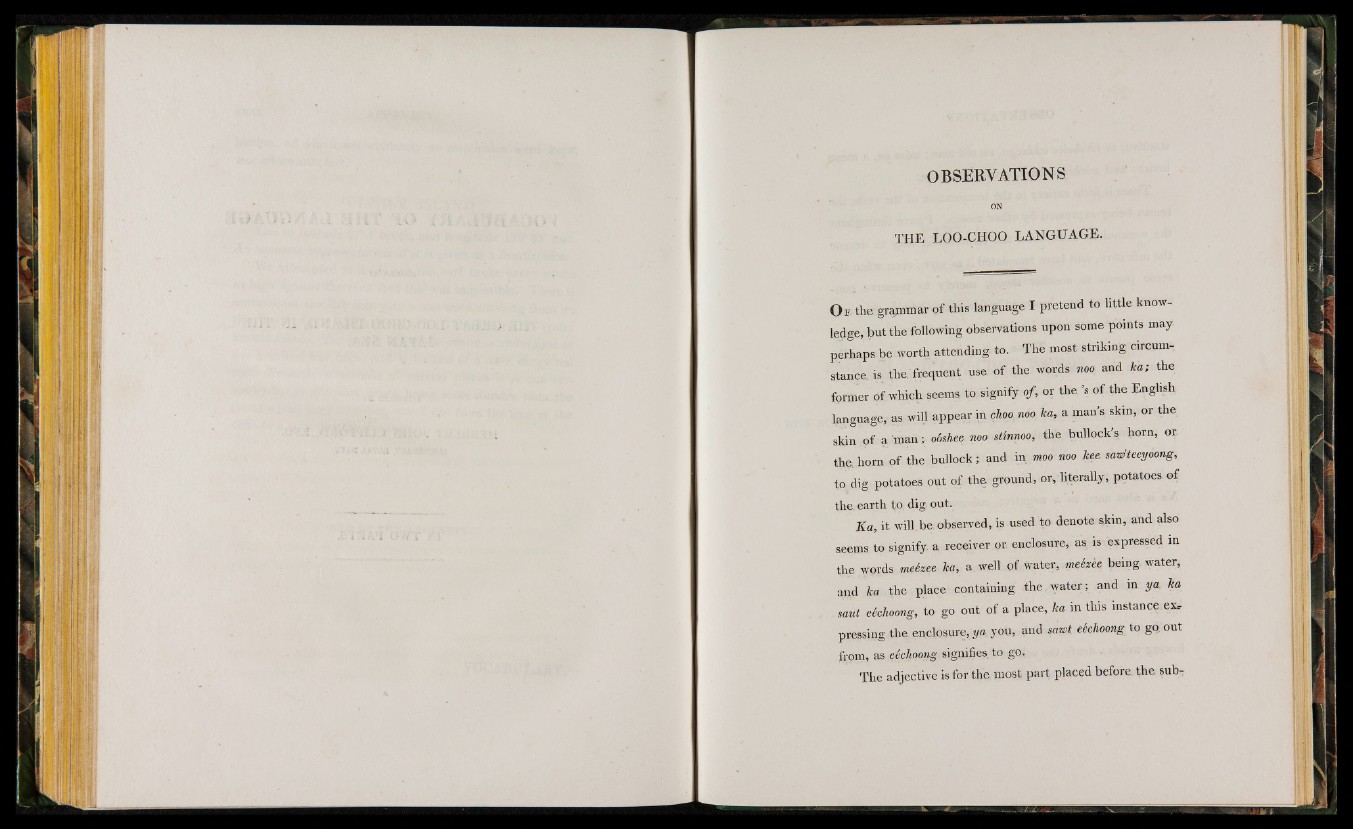
OBSERVATIONS
ON
THE LOO-CHOO LANGUAGE.
O f. the grammar of this language I pretend to little knowl
e d g e , b u t t h e following observations upon some points may
perhaps be worth attending, to. The most striking circumstance,
is the. frequent use of the words noo and ka; the
former of which seems to signify of, or th e ’s of the English
language, as will appear in choo noo ka, a man’s skm, or the
skin of a m a n o6shee noo stinnoo, the bullock’s, horn, or.
the. horn of the bullock; and in moo noo kee sawteeyoong,
to dig potatoes out of the ground, or, literally, potatoes of
the, earth to dig. out.
Ka, it will be observed, is used to denote skm, and also
seems to signify a receiver or enclosure, as is expressed in
the words meizee ka, a. well of water, meizee being, water,
and ka foe place containing the water; and in ya. ka
saut eSchoong, to go out of a place, ka in this instance, ex,
pressing the enclosure, ya. you, and sawt etchoong to go out
from, as eechoong signifies to go.
The adjective is for the most part placed before, foe sub